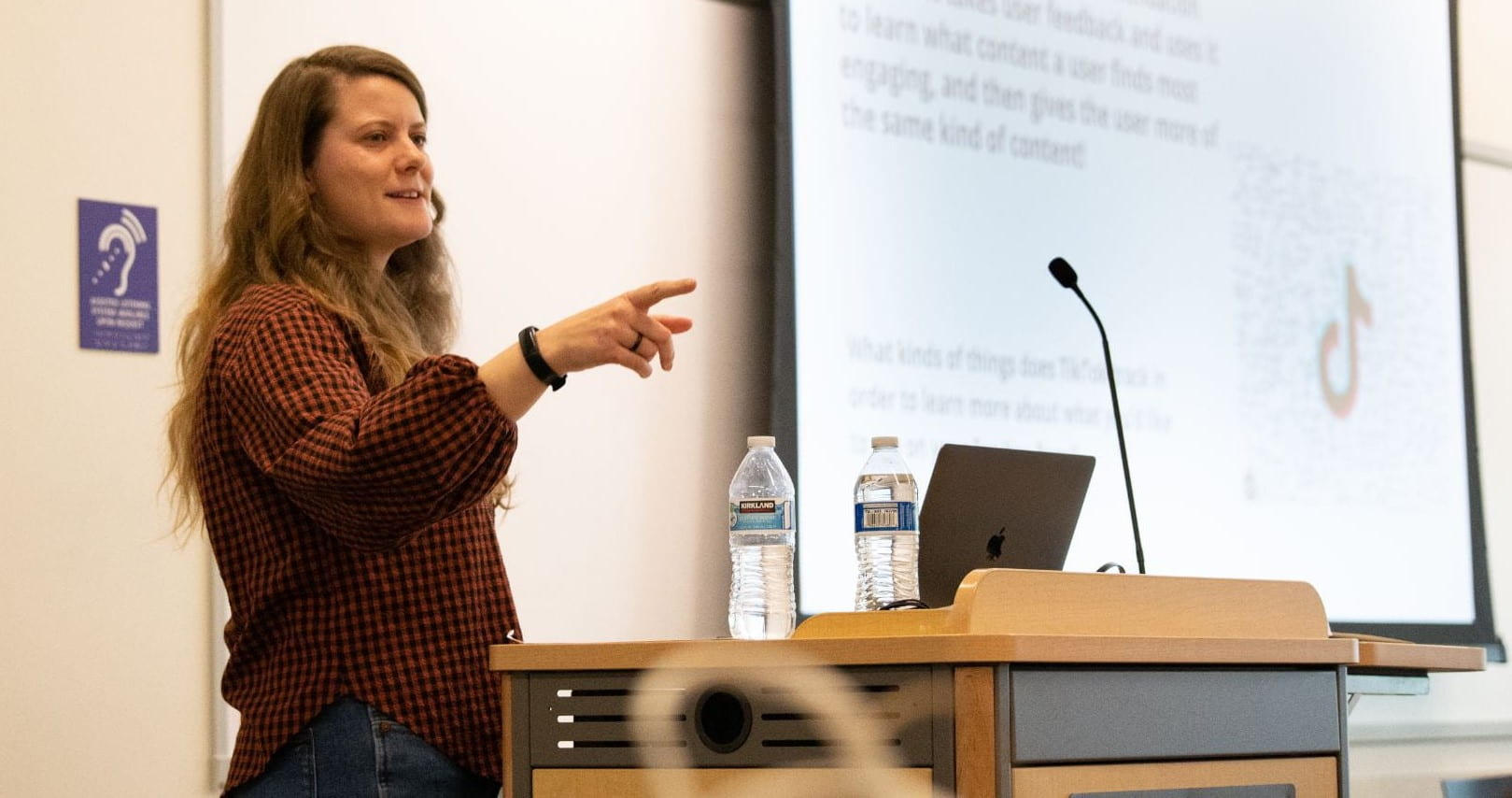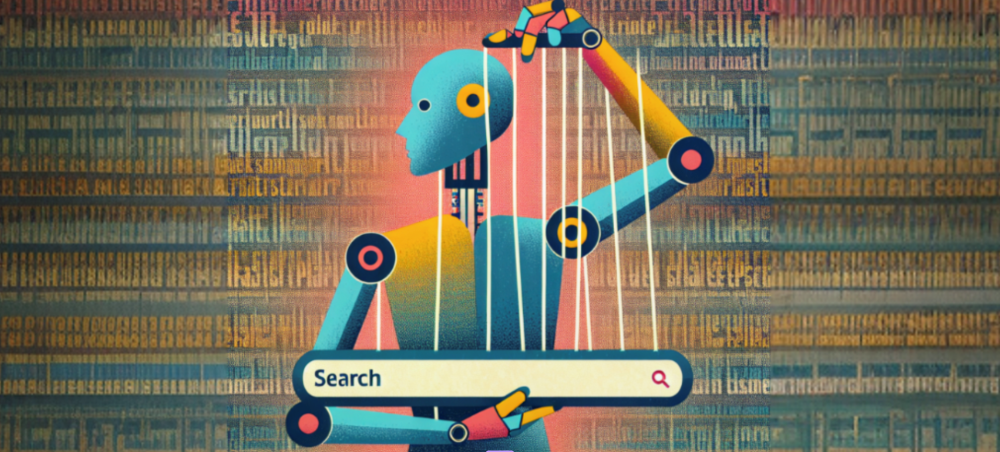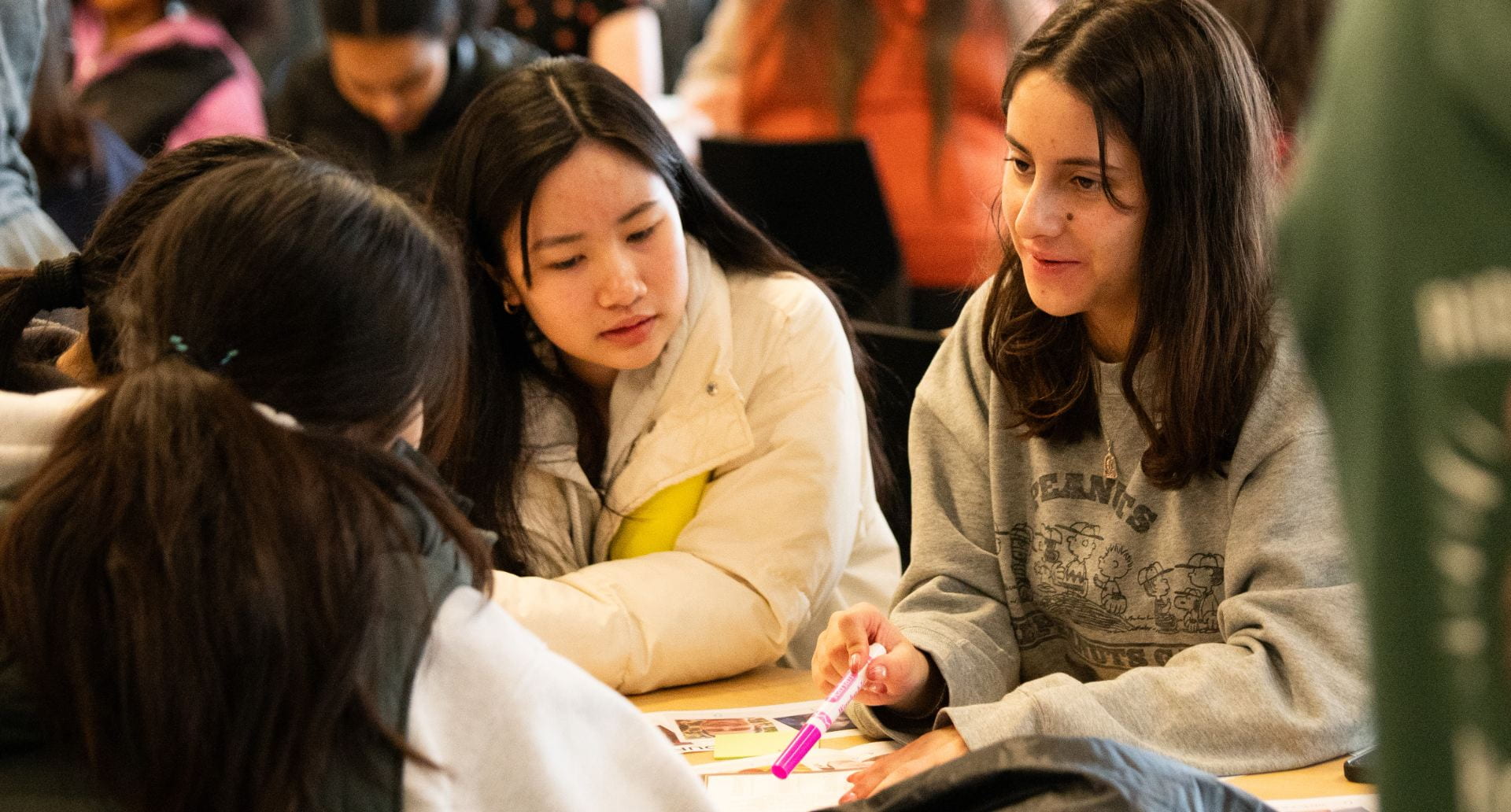This is the web version of the April 2024 edition of the Center for an Informed Public‘s News & Insights newsletter that was originally sent out on April 11, 2024.
EDUCATION
WA high school students and educators participate in MisinfoDay 2024 events at UW and WSU
In March, approximately 650 Washington high school students, teachers and librarians traveled to MisinfoDay events at the University of Washington in Seattle, Washington State University Pullman and WSU Vancouver, an annual educational effort co-organized through a statewide partnership between UW’s Center for an Informed Public and WSU’s Edward R. Murrow College of Communication.
- Watch an Education Week video feature on MisinfoDay 2024 at UW Seattle, including an interview with Meredith Linsey Kitchens, a CIP community fellow and teacher-librarian at Sedro-Woolley High School.
- In a segment that aired on National Public Radio’s “Morning Edition,” KUOW Public Radio’s Kim Malcolm featured lessons and activities from MisinfoDay at UW Seattle, including student learning through educational “escape room” style game activities. Listen to the radio segment and learn more.
- In a March 29 op/ed for The Seattle Times, CIP MisinfoDay program coordinator Liz Crouse shared key takeaways and lessons from this year’s educational event. Read more in “Lessons for everyone, not just students, at MisinfoDay.”
- Resources, educational modules, and activities: Access our MisinfoDay Library for educators and librarians.
Photo of students at MisinfoDay by Doug Parry / UW Information School
***
At the CIP, we think supporting opportunities for intergenerational and community learning is important. Our team, including researchers from our Co-Designing for Trust collaboration, funded through the National Science Foundation’s Convergence Accelerator, has assisted high school educators in Washington state develop social science fairs where students share digital literacy skills they’re learning in the classroom with the adults in their lives, including parents and grandparents.
- Read an article about Media Mentorship Night in the Port Townsend Leader.
- Watch a video on Port Townsend’s Media Mentorship Night event produced by the Office of the Superintendent for Public Instruction.
***
Can you spot the scam? Working in collaboration with our Co-Designing for Trust team, the Whatcom County Library System has developed digital literacy quiz activities where patrons can test the ability to spot common online scams.
- Try the quizzes and access additional digital literacy tools.
- Read more about this work from WCLS executive director Christine Perkins in an article originally published in The Lynden Tribune.
UW IMPACT / CIP ONLINE EVENT | MAY 2, 5-6 P.M. PT
 CIP postdoctoral fellow Mert Can Bayar to discuss election rumors, conspiracy theories and democracy.
CIP postdoctoral fellow Mert Can Bayar to discuss election rumors, conspiracy theories and democracy.
UW Impact and the CIP will present a critical online conversation about one of today’s most urgent questions: the proliferation of online misinformation and its effect on our society.
PEOPLE
 CIP announces appointments for 5 new faculty members.
CIP announces appointments for 5 new faculty members.
The CIP has named five new faculty members, Benjamin Mako Hill (Communication), Carole Lee (Philosophy), Martin Saveski (iSchool), Yanfang Su (Global Health) and Bo Zhao (Geography), bolstering the CIP’s multidisciplinary research and expertise.
2024 U.S. ELECTIONS
The Center for an Informed Public’s election research in 2024
A group of CIP-affiliated faculty members, research scientists, postdoctoral fellows and students are currently engaged in “rapid research” efforts around the 2024 U.S. elections where they seek to understand, communicate about, and help to mitigate the spread of false, misleading, and unsubstantiated claims about election processes and results. Our team’s work directly supports journalists, elections officials, and non-profit organizations working in underserved communities in quickly resolving rumors and helping people get accurate information about election processes.
***
A boosted video resonates with ‘border crisis’ and ‘rigged election’ frames
In a March 14 rapid research report, our team presented a multi-dimensional analysis that examines the origins, content and social media spread of a misleading video that connects U.S. border narratives to concerns with election integrity.
- Read the March 14 rapid research blog post by the CIP’s Mert Can Bayar, Ashlyn B. Aske, Nina Lutz, Joseph S. Schafer, Stephen Prochaska and Kate Starbird.
- Explore more 2024 election rapid research blog posts.
SPOTLIGHT

Earlier this year, the CIP promoted Rachel Moran-Prestridge to a new role as senior research scientist and Information School staff researcher after a productive three years as a CIP postdoctoral fellow, where she authored or co-authored more than 25 articles and other contributions to peer-reviewed journals.
- In a March Q&A with UW News, Moran-Prestridge shared findings in an article published in the International Journal of Communication with co-authors Anna L. Swan and Taylor Agajanian — about the ways Instagram influencers profit from anti-vaccine misinformation. Moran-Prestridge was also interviewed about the article’s findings for Oregon Public Broadcasting “Think Out Loud” program.
- In January, the UW Population Health Initiative spotlighted Moran-Prestridge’s contributions to “Untangling abortion misinformation and its impacts on healthcare providers,” a project with CIP colleagues initially funded through a PopHealth Tier 1 Pilot Grant that examined the influence abortion myths have on the work of abortion healthcare providers and other health professionals from related fields in the Washington, Wyoming, Alaska, Montana and Idaho (WWAMI) region.
RESEARCH IN FOCUS: GENERATIVE AI

In a commentary, UW Information School doctoral student Shahan Ali Memon and associate professor Jevin West explain that “search engines are already answering queries with error-laden, generated content, further blurring the provenance of information and impacting the integrity of the information ecosystem,” argue that all these factors could reduce the reliability of search engines, and summarize some of the active research directions and open questions.
- Read the commentary, “Search engines post-ChatGPT: How generative artificial intelligence could make search less reliable”
***
Can provenance save us from a barrage of synthetic media?
Through work with the Coalition for Content Provenance and Authenticity (C2PA), UW researchers found that provenance can help better calibrate trust and accuracy perceptions of media. But it can come with its own risks of misinterpretation.
- Read more in a CIP blog post by Kevin Feng, a third-year Human Centered Design & Engineering doctoral student, Jina Yoon, a second-year doctoral student in the Paul G. Allen School of Computer Science & Engineering, and Amy X. Zhang, an Allen School assistant professor and CIP faculty member.
***
KUOW Public Radio: Scary good or just plain scary? OpenAI’s text-to-video tool amazes some, worries others
In a Feb. 21 KUOW Public Radio “Soundside” interview, CIP co-founder Jevin West joined a panel discussion about Sora, OpenAI’s text-to-vide0 tool that has raised concerns about its potential for misuse. Despite the necessary caution, West noted the importance of letting people, including students, interact and experiment with generative artificial intelligence. “I think we have to lean into the critical side, and we should be concerned about the ways in which it can disrupt things like democracies,” he said. “But we also should allow the creative world — and in our case, it’s the students — to interact with this as long as they understand the implications of what they’re doing with the technology and the ways in which it can be misused.”
Image above generated by You.com’s Create mode.
CIP IN THE NEWS
In an interview with The Guardian, CIP director and co-founder Kate Starbird, a UW Human Centered Design & Engineering associate professor who is studying rumors and misinformation around the 2024 U.S. elections, said that she, as The Guardian writes, “fears that the election fraud narrative has now ‘sunk in’ so deeply for so many Americans on the right that it could end up creating worse laws and procedures — and actually increase the possibility of a successful foreign interference campaign in U.S. elections.”
***
- Read CIP monthly news summaries for January, February and March.
- Check out the CIP’s full news archive.



